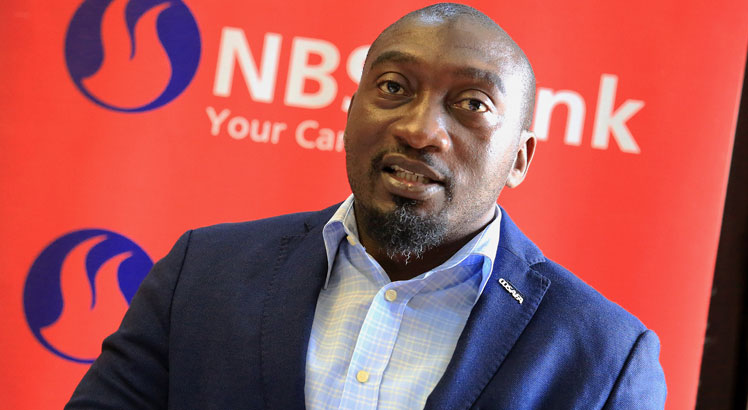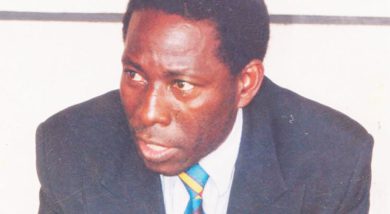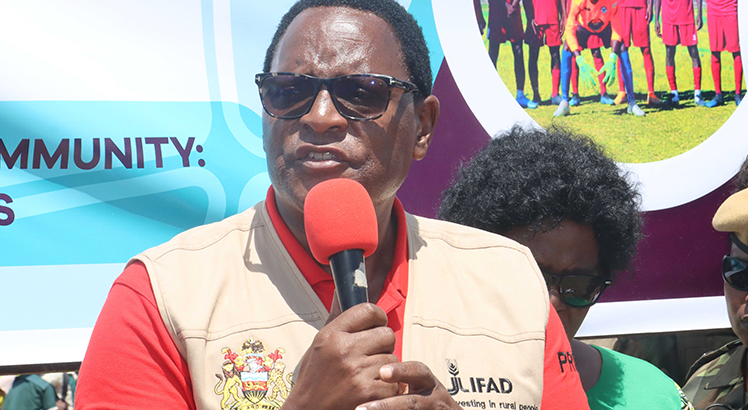Amateur rules spoiling professional boxers

Malawi’s prominent professional boxers struggle at international matches because they adhere to amateur boxing rules, Nation on Sunday has established.
It has been noted that most of the local boxing judges, coaches and referees still use amateur boxing rules when officiating local professional bouts and, as a result, local boxers treat it as normal practice when they get on the international stage.
Boxing analysts have also attributed the local boxing judges’ controversial decisions on some recent international non-title bouts, such as the fight between Malawi Defence Force (MDF) boxer Alick Mwenda and Zimbabwean Brian Mwando, to this malaise. The judges scored against Mwando, yet, the fans believed the Zimbabwean was robbed of victory.
“Most boxing officials in the country do not know that professional and amateur boxing rules are different. Once they graduated from the amateur ranks, they did not take time to embrace and understand professional boxing rules.
“That, in turn, spoils our professional boxers as they follow amateur rules during international bouts,” said boxing coach Godfrey Jalale.
Boxers Osgood Kayuni and Chimwemwe Chiotcha concurred with Jalale that indeed local boxers struggle on the international arena because of their poor understanding of professional boxing rules.
“Sometimes, when we go outside Malawi for fights, we feel as if we have been robbed of victory only to learn later that the referees’ decisions were indeed in accordance with the boxing laws,” Kayuni said.
Jalale, who is drilling Chiotcha ahead of his international non-title bout against Tanzanian Francis Cheka, said this in reaction to Malawi Professional Boxing Board’s (MPBB) revelation that they have received new professional boxing rules from the World Boxing Council (WBC).
After perusing some of the rules, Jalale noted that the regulations are not necessarily new, but they were being ignored in the country for a long time due to local boxing officials’ laxity to apply them.
According to MPBB president Lonzoe Zimba, the WBC has ordered the body to start applying the new rules on the local boxing arena at the end of this month.
Zimba said that according to the new rules, a boxer knocked down thrice during a match will no longer be declared a loser while a boxer who leans on the ringside after being punched will lose two points as that will be regarded as a knock-down.
The MPBB boss added that boxing judges have been mandated to submit scoring cards to the referee at the end of each round to avoid the doctoring of results at the end of the bouts while the ringside doctors have been empowered to end the bout if they realise that one opponent has been seriously injured.
He also said that the super heavyweight category has been chopped from the list of weight categories as boxers weighing over 96.5kgs will be fighting under the heavyweight category.
“The local boxing fraternity will start adhering to these new rules in order to be at par with world professional boxing standards. By the end of this month, the new rules will be rolled out,” Zimba said.
However, Jalale, who has been a boxing coach for over a decade now, argued that most of these rules have been in existence for sometime now, but they were not followed on the domestic scene. He said he had been observing the appliance of such rules on bouts he had been watching on international television channels such as CNN.
For example, he said the knock-down rule by the ringside and the judges’ submitting of scoring cards to referees after each round had been applied internationally for years but local officials have not been taking note of that.
“When some of us try to advise them (the officials) on such developments when they make mistakes, most of them seem offended; they believe some of us are too junior to correct them. They are obsessed with leadership, but not developing the standards of the sport among local boxers.
“I tell you, if we properly followed the professional boxing rules, our boxers could win trophies and cash on the international scene,” Jalale said.
Nevertheless, Ngumi Boxing Promotions’ manager Stephen Mawenzi Msiska said the latest rules will automatically separate professional and amateur boxing officials and help to solve the deepening crisis that has so far affected the sport in the country.
“I think this is a nice development. At present, it is difficult to differentiate between professional boxing officials and those in the amateur ranks. Most of the local officials have amateur boxing background and they are not aware that the two ranks have different rules,” Msiska said.
He added that this is the reason his organisation, in conjunction with the International Boxing Federation (IBF), has arranged a seminar in Blantyre early September to enlighten local boxing officials on how professional boxing should be handled.
“Boxing judges and new professional boxers are our main target for this seminar. Of late, local boxing fans have been complaining of biased officiation and we want to deal with that,” he said.
Despite that, Chiotcha expressed delight at the removal of the super heavyweight category from professional boxing. He said some of his opponents deliberately eat a lot of food and become overweight so as to get walk-over victories in competitions.
“Some boxers deliberately become overweight to avoid facing tough opponents like me in the ring. Now, they will have only two options; to face me or retire from boxing,” Chiotcha said.





